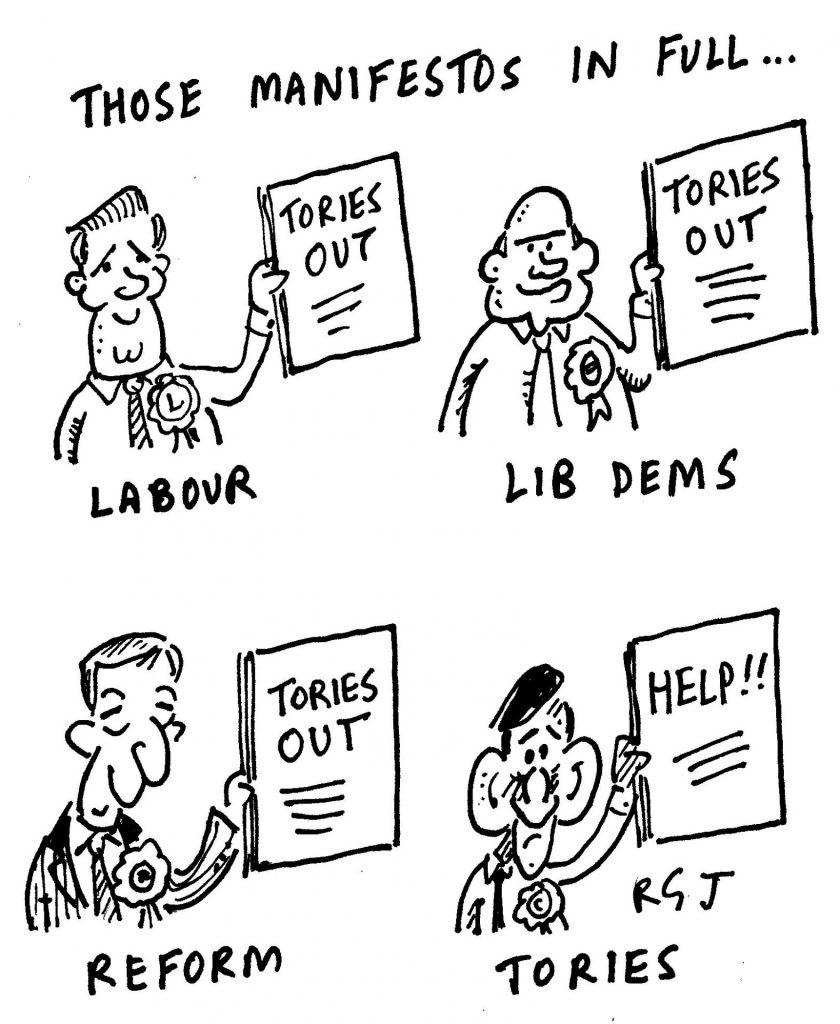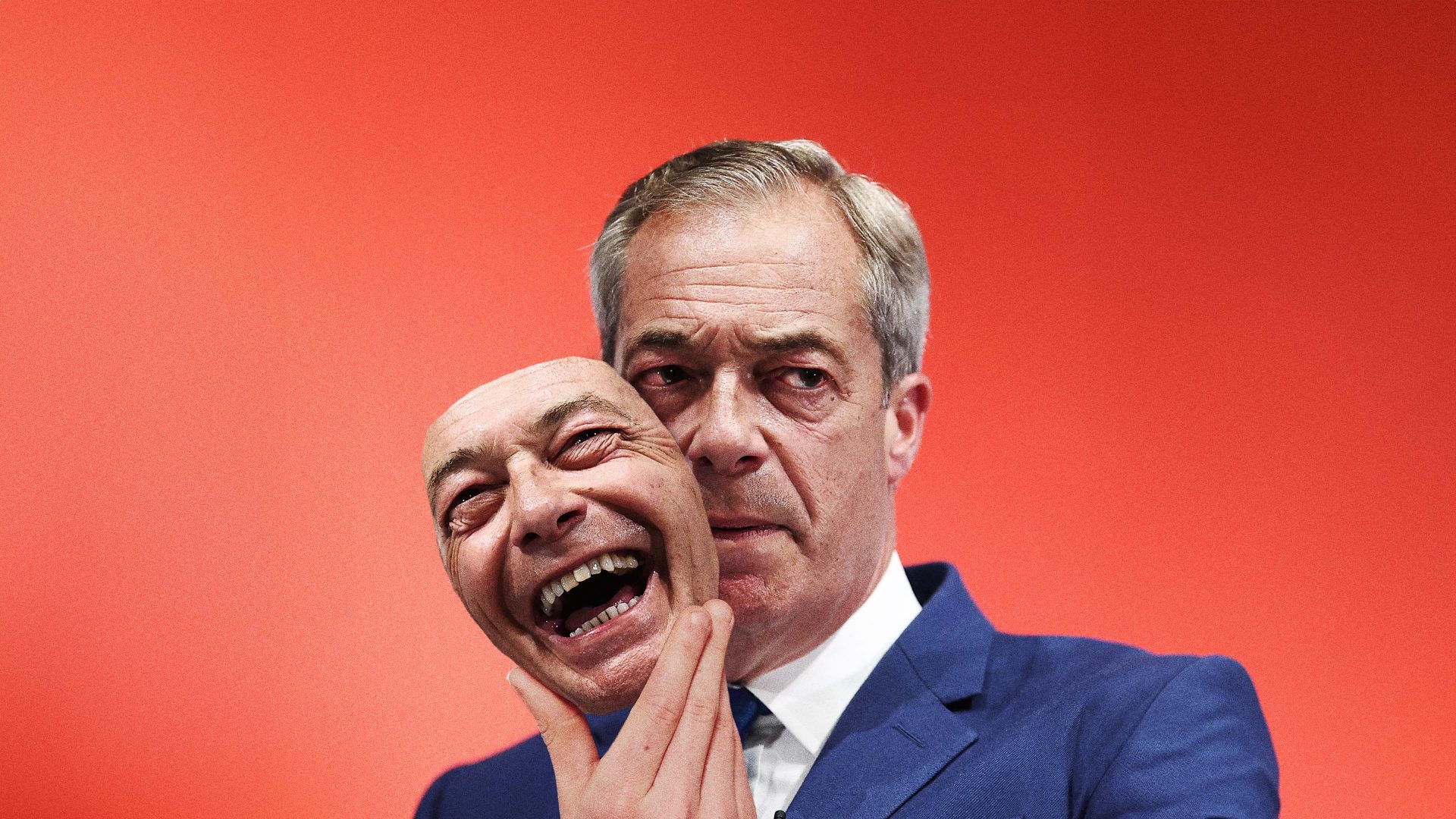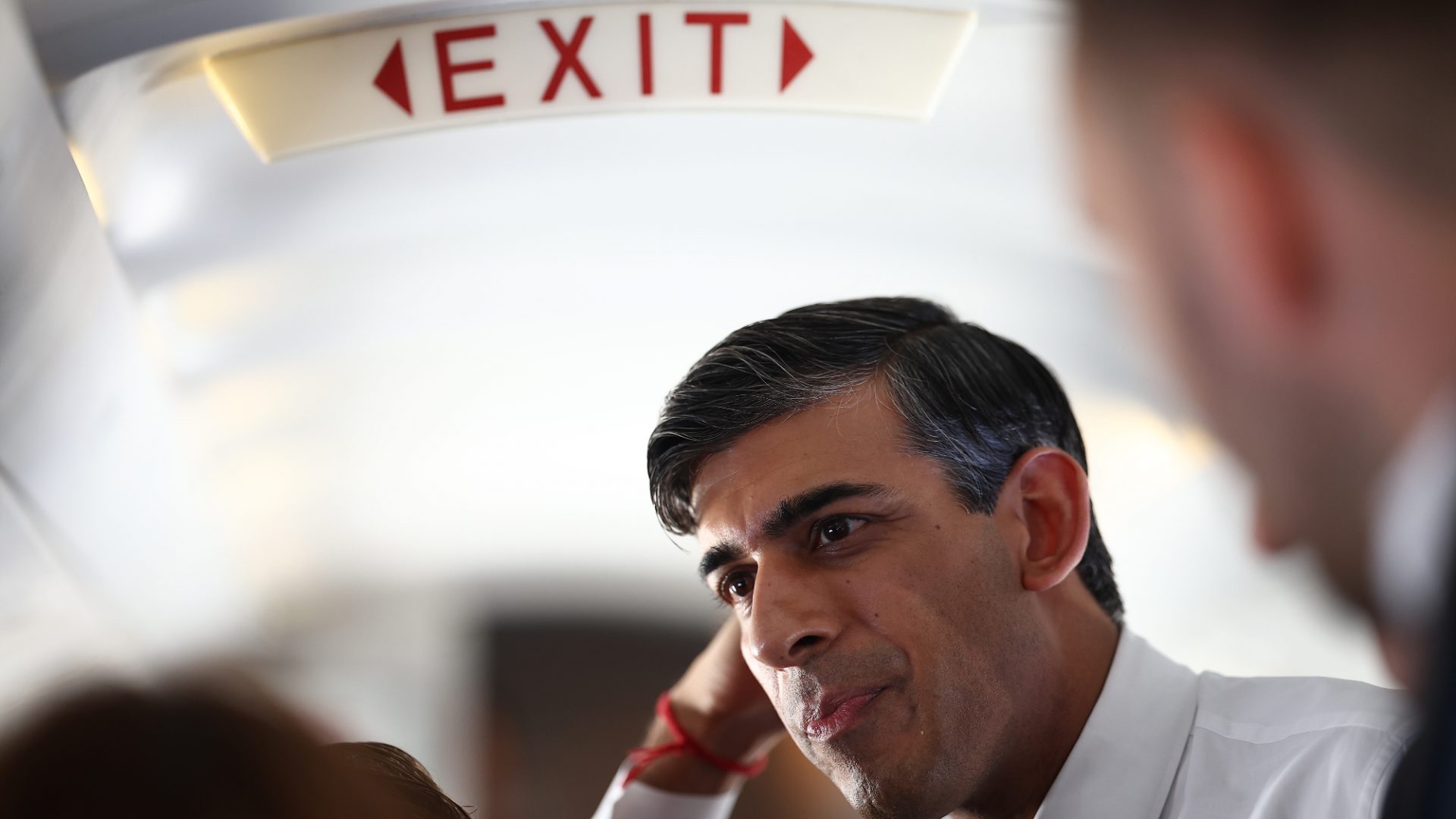In any election campaign, there will be a moment, an incident, sometimes just a phrase, that will enter the body politic, and stay there, for historians and political geeks to reflect on for the rest of time. Think Margaret Thatcher’s “Labour Isn’t Working” posters in 1979. John Major’s soapbox in 1992. Or New Labour’s Things Can Only Get Better campaign song in 1997. So far as Election 2024 goes, Rishi Sunak’s D-day disaster is the thing.
I see it is being compared with Gordon Brown’s “bigot-gate” moment, when he was caught making what he thought was a private comment about a woman who had just harangued him over immigration. There is no comparison. And there are many differences.
When Gordon said that word in the back of his car, I was waiting for him in Manchester, where he was due to take part in a TV debate with David Cameron and Nick Clegg. Arriving back at the hotel, he was distraught; partly because he knew he had made an unforced error which risked damaging the campaign; also, because he knew he had plunged into a media storm a member of the public who was doing nothing more than say what she thought.
It was his decision that he should go back to Rochdale, see Gillian Duffy, and apologise. For all the political heat at the time, he felt better for it, and his subsequent speeches were the most powerful of the entire campaign.
But whereas that furore arose over something totally unplanned – Gordon was unaware the mic was still on – Sunak’s D-day disaster could and should have been foreseen, not just by him, but by anyone who was involved in his schedule or his campaign. I cannot for the life of me imagine what they all thought they were doing as they headed home from Normandy to double down on tax lies in an interview with ITV.
Why didn’t David Cameron, told he would have to stand in for Sunak in photocalls with presidents and prime ministers, say, “No, hold on, this is a disaster”? Are Sunak’s advisers so politically braindead that they could not see the enormity of the own goal they were about to score?
Talking to someone who until recently was working in No 10, I made the point that Sunak and team had clearly decided that he would do not just most, but virtually all, of the campaign heavy lifting. I said I assumed that meant either that he enjoyed it, or he thought he was good at it. Not so, I was told.
“He thinks he has to do it. But he hates it. So what happens is that they work out the line, turn it into a clip, he memorises it and then delivers it. But he doesn’t enjoy it at all.”
That conversation took place shortly before the D-day debacle. But when I watched Sunak’s interview with Sky’s Sam Coates, in which his “apology” was issued, it was clear that even in a situation as dire as the one he had created for himself, he couldn’t find a different tone, a different mode, a different gear. He had a rehearsed line, and delivered it, several times, virtually word for word, to an increasingly incredulous interviewer.
Boris Johnson was unfit to be prime minister because he is a compulsive liar. Liz Truss was unfit to be prime minister because she is reckless, unserious and not terribly bright.
Rishi Sunak is unfit to be prime minister because he is just not very good at politics, one of the basics of which is the ability to speak to and about other human beings in a way that suggests you are a real human being yourself, not a speak-your-weight machine who has been wound up to deliver a line written for you by advisers who thought it was OK to leave veterans and world leaders behind, thereby leaving the last vestiges of your credibility on a beach in France.

“Oh my God,” texted my daughter Grace, “I can’t believe you met GK Barry! She is epic!!” Go on, admit it, average New European reader, you don’t know who that is, do you? Nor did I, until my publisher suggested an interview with GK Barry was the best way to kick off the promotion of my two new books, out this month and next, aimed at explaining politics to children and young adults.
So off I trooped to Bauer Media HQ near Euston station, and met the 24-year-old social media influencer who has more than three million followers on TikTok and whose Saving Grace podcast also has a big following among the young. Best of all though, so far as I was concerned, is that she has launched The Turnout, a project aimed at persuading young people to vote.
She would be the first to admit that when it comes to politics, she is not the best-informed young woman on the planet, but she has set herself the challenge of getting her friends, and her listeners and viewers, to get involved and get engaged. Power to her elbow.
She asked me if I could persuade Keir Starmer or Rishi Sunak to do an interview with her. They would be taking a bit of a risk, given she is very good at the short, snappy, unexpected and often irreverent question, but judging by how many of my Grace’s friends got in touch about the very fact of me doing the interview, it might be a risk worth taking to get in front of an audience unlikely to be tuning in to TV debates, let alone reading a newspaper or listening to the Today programme.
My book for teenagers, Alastair Campbell Talks Politics, features a young woman I met in Clacton, when I visited a school there ahead of appearing on a BBC Question Time Brexit special, in which the audience was made up 100% of Leave voters. Annabelle Fox is a pupil at Clacton Coastal Academy, where my poll of the children there suggested they were as much anti-Brexit as the older generation in the TV audience seemed to be pro.
She gave me some terrific advice, when I asked how I should handle the audience. “Don’t trim your views. They won’t respect you for that. Persuade without judgment.”
I have thought of that often since, and so should those candidates seeking to prevent Nigel Farage from winning in Clacton. You cannot blame the people who voted for change back in 2016. But you can blame the liars who told lies, and the snake oil salesmen who sold false promises.
Persuade without judgment.
My diary is a total zoo at the moment, yet one of the joys of not being directly involved in the campaign is that I can still find time to watch a bit of sport. And what a run I’ve been on. The Scottish FA Cup Final at Hampden Park, the Uefa Champions League Final at Wembley, then back there a week later for the Rugby League Challenge Cup Final, and now off to Germany for the opening game in the Euros, hoping Scotland might pull off one of the biggest shocks of all time.
I do feel a little bit guilty when there is an election on, but then I think of all the big events that I missed in the past, precisely because I was working 24/7 on an election campaign, and the guilt subsides sufficiently for me to sit back and just enjoy it!




